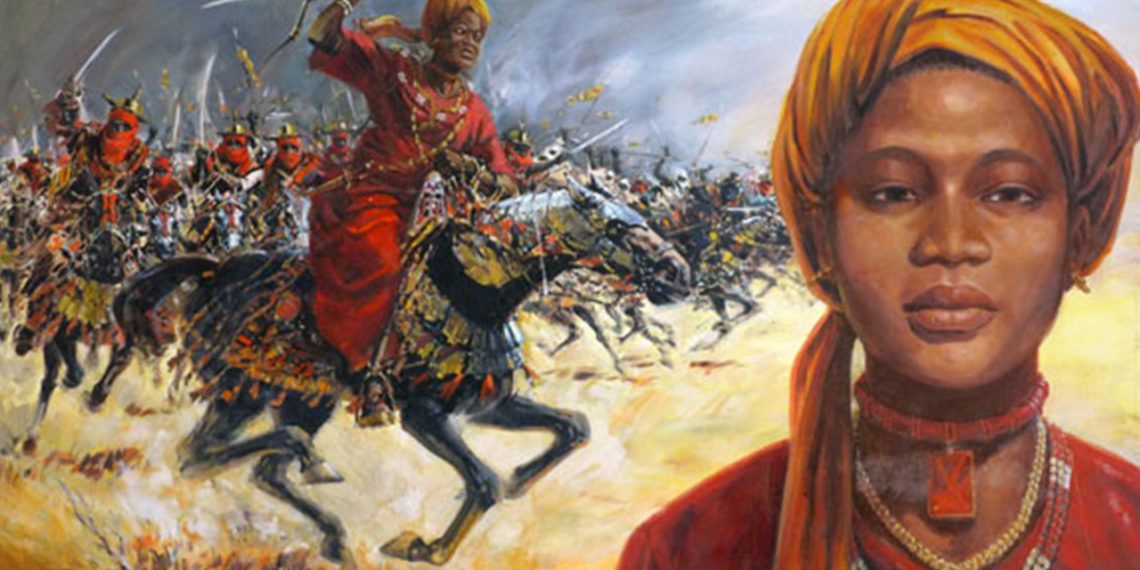Imagine a woman as the president of Nigeria, commander-in-chief of the armed forces, in total control of all thirty-six states. Imagine her solving all the issues faced by Nigerians. You can now travel at night, sleep
with your door open, go to the market and come back home happy with money to spare. Hopefully, Nigeria will get to a time when we can travel at night, sleep with our doors open, and go to the market and
buy a bag of rice for five thousand naira, but a woman leading the country is simply impossible. Why is that?
Some people have less regard for history, there have been arguments between historians on the detail and authenticity of Queen Amina of Zazzau (now Zaria) account. Amina became the first queen (Sarauniya)
in a male-dominated society. Amina was a child who enjoyed wielding a sword rather than playing with toys and was determined to be great. Amina was born around 1533 into a wealthy family. Her father Bakwa of
Turunka died in 1566, and her younger brother Karama became the ruler of Zaria. Amina, at this point, was mastering her fighting skills and gaining admiration within the military. After ten years, her brother
died. Amina was already a fierce and wealthy warrior and had earned the respect of the warriors, which made it easy for her to become the Queen of Zaria.
Women are marginalised, and their roles have shifted since colonisation. History has not been fair in telling the achievements and contribution of women toward nation-building. During the reign of
Amina (pre-colonisation), men were not afraid of women in higher offices as it wasn’t gender-based but based on merit, age, and kinship. If the same principles were applied in today’s society, the
idea of a female president would not look so far-fetched.
The birth land of Amina, the province of Zazzau, was at the crossroads between major trade passages of northern Africa, connecting the Sahara with several Hausa states and western Sudan. A few months after Amina assumed power, she led her first military warfare. During her reign of
34 years, she continued to fight, securing and expanding her territory. Her territory reached Kano and Katsina with an army of over twenty thousand men.
Marriage wasn’t a priority to Amina. From the early age of sixteen, eligible men asked for her hand in marriage and brought her all sorts of expensive gifts, including fifty male and fifty female slaves,
fifty bags of blue and white cloth from Sarkin (king) Kano. According to legend, Amina never married, and after each battle, in each city she conquered, she would take a lover and have him killed the next day.
Amina, the daughter of Bakwa, a woman as capable as a man, made her kingdom wealthy and powerful with gold and new crops. She also protected her people and markets, building walls (Amina walls) to
secure her people from attack and show her leadership. Her subjects were good metal workers, Amina, introduced her army to metal armor, including iron helmets and chain mail.
The pictorial representation of what Amina looks like remains a mystery, as cameras and snap chat filters did not exist. I would assume she looks like Xena the warrior princess, or perhaps Wonder
Woman. Legend has it that she died in battle at Atagara near Bida. Her legacy, however, lives on.
Queen Amina’s legacy contradicts the myopic ideologies on women’s leadership in Nigerian society, where the inequality faced by women affect their contribution to nation-building. Women don’t have the
platform to make a positive impact, and even those who have struggled and challenged the status quo receive backlash over their ambition. There have been minor improvements for women’s rights, yet more needs to be done. Exemplary women like Queen Amina show the possibility of Nigerian women reshaping and promoting nation-building. Challenge the status quo and break the bias.




